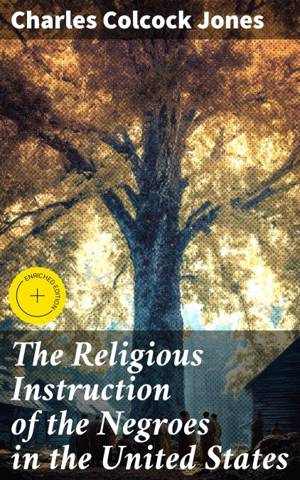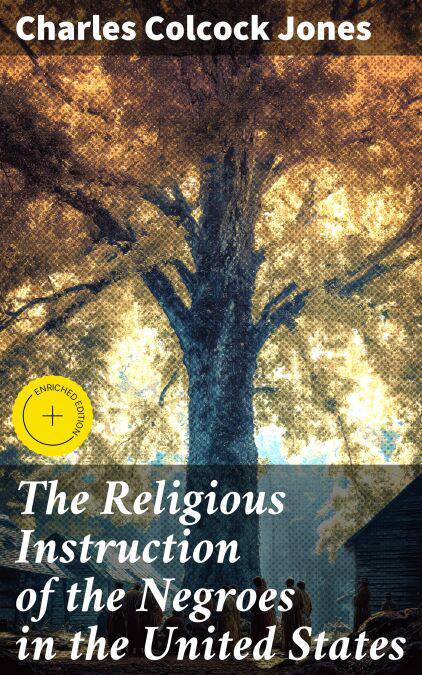
- Afhalen na 1 uur in een winkel met voorraad
- Gratis thuislevering in België vanaf € 30
- Ruim aanbod met 7 miljoen producten
- Afhalen na 1 uur in een winkel met voorraad
- Gratis thuislevering in België vanaf € 30
- Ruim aanbod met 7 miljoen producten
Zoeken
The Religious Instruction of the Negroes in the United States E-BOOK
Enriched edition. Exploring the Influence of Christianity on African Americans in Antebellum America
Charles Colcock Jones
E-book | Engels
€ 1,99
+ 1 punten
Uitvoering
Omschrijving
In "The Religious Instruction of the Negroes in the United States," Charles Colcock Jones explores the complex interplay between faith, culture, and race during a period marked by social upheaval and moral questioning. This seminal text provides a comprehensive examination of the religious practices among enslaved African Americans, emphasizing the transformative power of Christianity in their lives. Jones adopts a didactic tone, meticulously detailing theological principles while also portraying the lived experiences of the enslaved. His keen observations reflect the broader religious landscape of the time, situating his work amidst contemporary debates on morality, ethics, and the institution of slavery. Charles Colcock Jones was a prominent Presbyterian minister and educator, deeply influenced by the socio-religious currents of the 19th century. His passionate advocacy for the spiritual education of enslaved individuals stemmed from both a moral conviction and a recognition of their humanity. Jones's background in theology and his pastoral experience undoubtedly shaped his perspectives, leading him to confront the often ignored dimensions of African American spirituality. Readers interested in the intersections of religion, race, and history will find this work invaluable. It serves not only as a historical document but also as a poignant reminder of the resilience of faith in the face of oppression. Jones's insights continue to resonate, making this book a critical resource for scholars and general readers alike.
In this enriched edition, we have carefully created added value for your reading experience:
- Hand‐picked Memorable Quotes shine a spotlight on moments of literary brilliance.
- Interactive footnotes clarify unusual references, historical allusions, and archaic phrases for an effortless, more informed read.
In this enriched edition, we have carefully created added value for your reading experience:
- Hand‐picked Memorable Quotes shine a spotlight on moments of literary brilliance.
- Interactive footnotes clarify unusual references, historical allusions, and archaic phrases for an effortless, more informed read.
Specificaties
Betrokkenen
- Auteur(s):
- Uitgeverij:
Inhoud
- Aantal bladzijden:
- 189
- Taal:
- Engels
Eigenschappen
- Productcode (EAN):
- 8596547771890
- Verschijningsdatum:
- 7/12/2023
- Uitvoering:
- E-book
- Beveiligd met:
- Digital watermarking
- Formaat:
- ePub

Alleen bij Standaard Boekhandel
+ 1 punten op je klantenkaart van Standaard Boekhandel
Beoordelingen
We publiceren alleen reviews die voldoen aan de voorwaarden voor reviews. Bekijk onze voorwaarden voor reviews.







